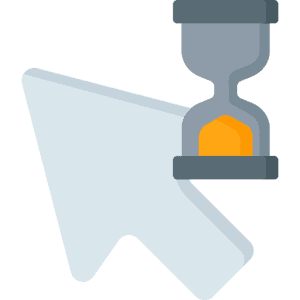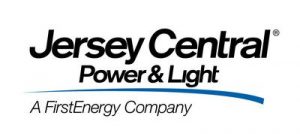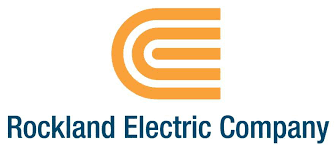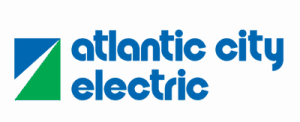Compare New Jersey Energy Rates
Just like Texas, Pennsylvania, or Ohio, New Jersey offers its residents the power of choice through its deregulated energy market. Customers like you can avoid paying high standard tariffs set by utilities and enjoy better prices and additional benefits from the competition.
How does New Jersey electricity deregulation work? Your local utility company manages the energy infrastructure (lines and wires) and controls the delivery of electricity to your home but is no longer in the business of providing the lowest possible electric rates. Instead, New Jersey residents can shop with one of many NJ energy providers for fixed-rate, variable-rate, and green energy plans and many benefits. We will show you how.
New Jersey Electricity Rates
Lowest electric rates in NJ today:
New Jersey Energy Market Data
Last updated July 2024
- The average New Jersey residential electricity rate was 16.32 ¢/kWh (15% higher than the national average).
- The average New Jersey commercial electricity rate was 13.57 ¢/kWh (13% higher than the national average).
- The New Jersey on-peak usage is currently 9 am to 9 pm Monday through Friday and off-peak usage is 9 pm to 9 am every day of the week. When daylight saving time ends, the hours change from 8 p.m. to 8 a.m.
Source: New Jersey energy data from The U.S. Energy Information Administration (EIA)
| . | Main |
|---|---|
| Average New Jersey Residential Energy Rate | $0.1614 per kWh |
| Average New Jersey Commercial Energy Rate | $0.1342 per kWh |
| % of Renewable Energy in New Jersey | 8% (2020 data) |
| New Jersey Deregulation Status (Yes/Partial/No) | YES, both natural gas and electricity |
| Main Source of State Electricity - New Jersey | Natural Gas and Nuclear - 90% |
| Average New Jersey Household Energy Use - Month | 985 kWh per Month |
| Average New Jersey Household Energy Use - Year | ~12,000 kWh per Year |
| Average New Jersey Monthly Electric Bill | $169 per Month |
New Jersey Electric Suppliers Rates Overview
The current average residential rate in New Jersey is 16.32 ¢/kWh, a lot higher compared to the US national average of 13.90 ¢/kWh. What’s more, New Jersey electric rates continue to rise, with public service electric utilities pushing the cost of power up nationally.
When you switch energy companies, your local utility will continue to deliver electricity safely to your door through the state power lines. The only thing that will change will be the supply portion of your energy bill – which will now have the name of your new supplier and a better supply rate!
Energy Deregulation in New Jersey
New Jersey deregulated its retail sector in 1999 with the Electric Discount and Energy Competition Act (EDECA) and gave the residents choice in the selection of the top energy suppliers and attractive rates. The deregulation introduced a new era where businesses and homeowners could freely shop for New Jersey electric rates and switch to competitive, more convenient energy providers.
The New Jersey Board of Public Utilities actively monitors the New Jersey natural gas and electric rates in the competitive marketplace. Although the website does a great job of informing customers of who the licensed NJ energy suppliers are and what questions to ask them, it doesn’t offer any comparison of rates in New Jersey for customers to choose the right energy plan.
That’s where ElectricRate comes in! You can enter your zip code to see the available offers in your area or read our energy suppliers’ reviews and find out about additional perks you can enjoy as a consumer.
 | Switch to your new service in a few clicks - When you enter your zip code on ElectricRate, you will not only see all rates, with the cheapest deals displayed on the top of the list, but you can also sign up immediately with just a few clicks. |
 | All the information you need in one place - As customers, we all like excellent customer service and extras. That's why at ElectricRate, we carefully review all major suppliers and compile information about customer support hours, ratings, and extra benefits that they provide, such as attractive referral programs, complementary goods, and value-add services. |
 | Get the support you need: Our team at ElectricRate is ready to provide ongoing support to customers, including helping you choose the plan that best fits your lifestyle, notifying you when your plan is about to expire and any additional support you might need. All you need to do is give us a call at 1-888-307-9636 or email [email protected] |
New Jersey Energy Companies
The big four public utilities in the state of New Jersey are Jersey Central Power & Light, Rockland Electric Company (RECO), Atlantic City Electric, and PSE&G. They each charge different electric rates to their customers in the service area, causing the average electricity bill variations across the state. They are also free to raise the electricity rates at their discretion and they often do!
If one of them is your utility company, you can compare their standard tariff (also known as Price to Compare) to New Jersey electric rates from another energy supplier by entering your zip code in our online comparison tool.
Public Service Enterprise Group (PSE&G)

- Customer contact number: 1-800-436-7734
- Current residential standard tariff : 7.15 ¢ / kWh (Effective March 1, 2021)
- Current commercial standard tariff : 5.46 ¢ / kWh (Effective March 1, 2021)
Jersey Central Power & Light (JCP&L)
JCP&L, a member of the FirstEnergy Group of utilities, serves 1.1 million customers in central and northern New Jersey.

- Customer contact number: 1-800-662-3115
- Current standard tariff: 10.036 ¢ / kWh (Effective March 1, 2021)
- Get a residential Time of Day meter from JCP&L. For those who are unfamiliar with it, it’s a device that breaks down your electricity use into on-peak usage (currently 9 am to 9 pm Monday through Friday) and off-peak usage (9 pm to 9 am every day of the week). When daylight saving time ends, the hours change from 8 p.m. to 8 a.m.
Rockland Electric Company (RECO)

- Customer contact number: 1-877-434-4100
- Current standard tariff: 10.911 ¢ / kWh (Effective March 1, 2021)
Atlantic City Electric (ACE)
Atlantic City Electric, a subsidiary of Exelon Corporation, delivers safe, reliable, and affordable electric service to approximately 560,000 customers in southern New Jersey.

- Customer contact number: 1-800-642-3780
- Current residential standard tariff: 10.29 ¢ / kWh (Effective March 1, 2021)
- Current commercial standard tariff: 9.42 ¢ / kWh (Effective March 1, 2021)
Energy Plans & Products in New Jersey
Energy plans are like shoes. One size does not fit all. Navigating through complex information about power rates can be confusing and can ultimately deter you from shopping for a better deal. Below is all you need to know about the different energy products that power companies offer to New Jersey residents:
| Plan | Description | What's Good? | What's Bad? |
|---|---|---|---|
| Time of Use Tariffs | You pay a different rate based on the time of day (higher rates during peak hours and lower rates during non-peak hours) |
|
|
| Renewable Energy Credits (RECs) | By purchasing 1 REC, you purchase the environmental benefits of 1MWh of renewable energy generation. |
|
|
| Green / Renewable Energy Plans |
|
|
|
| Prepaid Plans | This plan lets you pre-purchase power for your home at a set price, like a prepaid cell phone. |
|
|
| Variable Rate Plans | Your per-unit gas and electricity costs can vary at the discretion of your supplier. |
|
|
| Fixed Rate Plans | Your unit price for gas and electricity will remain the same for the duration of the plan. |
|
|
How To Find The Best Provider For You
Switching to a new energy supplier might seem complicated, but we promise you – it isn’t! Follow these simple steps to find your New Jersey electricity rates plan:
Analyze Your Current Costs
Look at the electric supply charges on your utility bill, which will be expressed in cents per kilowatt-hour. This number is called your Price to Compare and your primary objective is to find a plan with a lower number.
Review Your Current Contract and Plan
Switching suppliers can be costly if you are the type of person that tends to skim through the fine print in your contract. For example, if you are currently on a fixed-rate electricity plan, there might be a penalty associated with switching out too early – check if you are able to switch without a fee.
Compare Energy Plans
Use our online tool to see available rates for your zip code. Find the one with the lowest rate and if you like what you see, you can sign up right there and then! A pro tip – We all like good customer service. That’s why at ElectricRate.com, we carefully review all major suppliers and rate them based on their prices, customer service, and extras! Before you sign up, read our review of your new supplier to avoid surprises.
What You’ll Need To Switch Suppliers
To change energy providers, you only need your zip code, a recent energy bill, and about 5 minutes of your time. The process is as follows:
- Enter your zip code on our website
- Find your monthly usage of electric utilities in your recent bill
- Compare rates from other suppliers for a similar energy usage
- Sign up for a new deal and start saving money
The change will be automatic and you won’t have to do anything else.
Getting to know your New Jersey Electricity Bill
Both variable-rate plans and fixed-rate plans in New Jersey have the same entries in their electricity bill. As New Jersey energy consumers purchase electricity in a deregulated energy market, the monthly bill includes the Utility Delivery Charges and the Supply Charges. Let’s read on and learn more about the electric bill in New Jersey:
Utility Delivery Charges
The utility company that makes sure that the power lines function and that your electricity usage is uninterrupted is called the utility company. This is the company that does maintenance over power lines, transformers, and poles to ensure reliable electric delivery and responsible management of the power grid. Paying the Utility Delivery Charges is a form of investing in the future and network reliability and ensuring that all electricity generated can actually be delivered by electric companies.
Supply Charges
Your average electric bill will also include details on the due amount under the supply charges. These charges go directly to your electric providers and are used to pay for the energy you’ve consumed in the wholesale electricity market. Even the cheapest electricity rates include this due amount, as this is the money that actually covers the energy costs.
Together, these charges (and types of companies) make up a deregulated area. When choosing the right plan, homeowners should always look at the conjoined price to be paid per kWh. Suspiciously low rates may seem to offer an advantage in comparison to other energy rates, but you can usually expect to see a significantly higher energy bill in a matter of weeks.
For this reason, it is always important to check both the utility delivery charges and supply charges to be able to compare the electric rates offered by your local energy providers. Choosing the best electric companies and the best electric plans starts with understanding your energy needs. New Jersey electricity providers offer a variety of energy plans and options, including:
- Fixed-rate plan options,
- Variable-rate energy plan options,
- Business energy plans,
- Green energy plan options,
- Prepaid energy plans (without a credit check), and many more.
Factors that Affect Electricity Rates
All utility services, not just electricity and natural gas, depending on a variety of factors that determine their prices. When you compare electric rates for electricity coming from different sources (such as green energy plans and non-renewable energy plans), you can see that the prices vary by far and large. If you have a variable-rate plan, you can see that the rate changes throughout the day and year as well. When you want to find the best energy rate for your home, you should be able to understand how these factors all contribute to the energy price you pay.
Fuels
In looking at New Jersey electricity rates, you may have found out that the source of energy can be an important factor in the price of that energy. This is important to know before you start shopping for a new electricity plan, as the majority of power plants are operated with the use of fuels. This means that choosing green energy plans will mean paying a higher rate (due to a high clean energy demand). Still, it will also mean more resilience against political factors and scarcity, which can significantly increase the rates in New Jersey’s green energy plans.
On the other hand, choosing non-renewable plans means that less planning is required, the price is lower, and you, as a consumer, are protected against the seasonality of green energy. You should understand that the best rates are not always obtained by the best way to generate electricity. Still, as millions of people decide to install smart meters and secure a higher share of clean energy, the search for the best rates of clean energy may be coming to an end: as there is more renewable energy in the grid, its price is set to get lower.
Power Plant Prices
Another factor that determines the electric rates in the deregulated area of New Jersey is the power plant prices. In this case, opting for one kind of energy over another does not make much sense, as all plants cost to build, operate and maintain. The renewable energy plants may give you a lower price since maintenance is low, but you should remember that this energy comes at a green premium.
Local Transmission and Distribution Systems
In view of the dual charges of your utility bill, it is important to note that the local transmission and distribution system is also a factor that determines the electricity rates you pay. Also known as the grid, this system is composed of transformers, poles, and power lines that all carry power to your home. Even the best electricity rates include these charges.
The money you give here should be seen as an investment, as it enables the local utility company better control over the network, financing research that should discover solutions for some common problems, as well as no interruption during the daily power delivery. A good and reliable grid is there to satisfy your energy needs. However, even if you compare the energy supply in your area, you will not be able to choose the grid, as there is only one, often serving more communities.
Area Regulations
The electricity rate coming with different plans offered in different service areas usually depends on local regulations as well. As there are a variety of plans and energy providers, electricity plans offered in your area (or the new address you may be moving to) have to be approved by a special board. This board also dictates the minimum and maximum price that electricity could be sold for in the country and on the local level.
Weather Conditions
Even the best electricity rates offered in your area are prone to fluctuations due to the weather conditions. During particularly cold or hot weather, consumers around the country enter a time period when more power is consumed, be it for heating or cooling. All this extra energy usage means a higher pressure on utilities for making and delivering more power to those who need it. As the supply is short, compared to the demand, the energy prices rise.
Energy Providers vs Utility Companies
Since energy deregulation, there have been dozens of energy providers that you can start contracts with within the New Jersey electricity market. Green Mountain Energy is just one of them. However, what many consumers find confusing is the difference between energy providers and utility companies. Here, we will try to explain the difference between these two.
Understanding that an energy provider is a company you sign your contract with is of paramount importance here. This is the company that purchases electricity in the wholesale market in your name and charges you for it. In a more metaphorical approach, this would be Amazon – you can purchase goods (electricity from them). The goods have been imported from other companies, so Amazon acts as ‘the middle man’.
A utility company is a company that actually delivers the electricity to your home. This electricity passes the power lines and poles that your utility company sets and maintains. In our metaphor, the utility company would be the series of roads, highways, railways, and airports that the Amazon goods have to travel through to reach your doorstep.
FAQs
Below are answers to some of the questions you might have about New Jersey rates:
How much is a kWh in NJ?
Electricity in New Jersey certainly isn’t a cheap affair. According to the EIA, the current average residential electricity rate in New Jersey is 13.42 ¢/kWh, a lot higher compared to the US national average of 10.54 ¢/kWh. Considering a household with an estimated monthly energy consumption of 900 kWh, the average electricity bill would come to $ 120.78.
How much does PSE&G charge for electricity?
According to the published information on its website, the Current PSE&G residential standard tariff is 7.299 ¢ / kWh (Effective March 1, 2021). This tariff is also called Price to Compare – the price that your utility charges for the supply portion of your electric service. If you are a PSE&G customer, you can compare electricity rates from other suppliers on our website.
How much does JCP&L charge per kWh?
According to the published information on its website, the current JCP&L standard tariff is 10.036 ¢ / kWh (Effective March 1, 2021). This tariff is also called Price to Compare – the price that your utility charges for the supply portion of your electric service. If you are a JCP&L customer, you can compare New Jersey electric rates from other suppliers on our website.
What’s a good rate for electricity?
Some customers like fixed-rate plans for peace of mind and to protect against spikes in the price. A variable-rate plan is a good option for those who want to keep their options open – even if it means a slightly higher electric bill. Green energy plans will be appreciated by sustainability enthusiasts. The best electric rate is tailored to the specific needs of the customer. You can compare electric rates by simply entering your zip code on our website.
Conclusion
Purchasing electricity in New Jersey is not as difficult as it may seem. Simply use the Electricrate.com website, enter your ZIP code and set the filters the way you want them to be set. You will then be able to view and browse all the power companies working in your ZIP code area and choose the best one for your energy needs. As is, the best is not always the cheapest, so make sure you understand what your energy needs are and always check what kind of freebies you get by signing a contract.
Updated on
